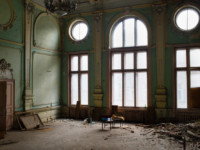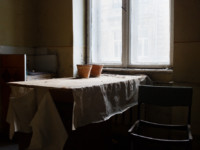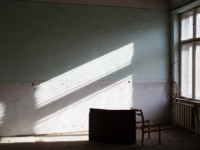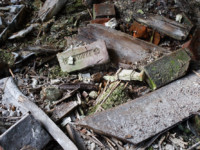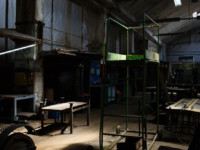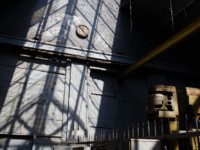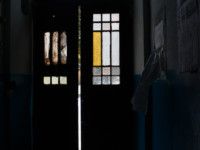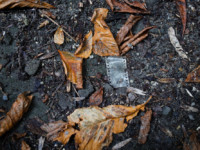Fragments of Memory reflects on history and memory in Lemberg/Lwów/Lviv, a city in present-day Western Ukraine what was formerly Austro-Hungarian Empire, Eastern Poland, Soviet Union. The project was launched at Lviv’s Museum of Ideas in September 2017, took part at Dash Café: Lviv on the borders of Europe at London’s RichMix in January 2018, Krakow’s FestivALT in June and Urban Jewish Heritage Conference| Presence and Absence in September. It came back in November to Lviv for the 2018 Limmud FSU Conference.
The project started as an investigation into the circles of Debora Vogel, an overlooked intellectual, writer and art critic of the 1920s-30s Lviv, this inspiring metropolis for modernist thought in arts, literature and science, as well as a place of social and ethnic conflicts. It was among Lviv intellectuals and artists, during the period of rising chauvinism and anti-semitism, that the idea of an inclusive and open culture was formed. Their redemptive and progressive vision was brutally squashed in the Holocaust, and yet not entirely extinguished. Fragments of it survive, shards which are like sparks, to be discovered through scavenging, collecting and juxtaposing.
Throughout 2015-2017, together with a musician and composer Olesya Zdorovetska, we walked the places Vogel inhabited and wrote about, met people who survived the war or who were born long after and reconnected with the vanished world. We encountered the story of the former Lviv Jewish museum (1934-1939), a derelict building at risk at the time we documented it in the Summer 2016. Will be history obliterated and all memory erased yet again by the recent 2017/18 controversial renovation that might result in turning the building into a hotel? What is remembered and what is forgotten? How do you talk about what you can’t know? The work that resulted from this voyage is concerned with the fragmented nature of memory, the presence and absence of people, personal stories pointing to Lemberg/Lwów/Lviv.
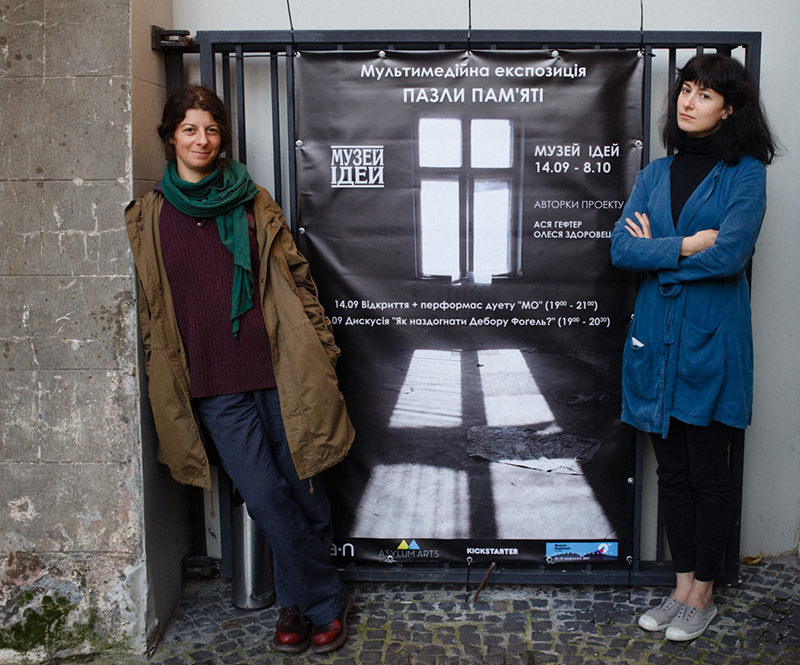
Vogel became this figure who epitomised Lviv as a microcosm of Europe’s 20th century and my own concept of European identity – the melting pot of different mentalities, cultures and ethnicities, in which I was looking for myself. Her experimental poetry, all written in the 1920s-30s, was, in the spirit of early 20th century European literature, radically avant-garde and attuned to all the modernist minimalisms. Being skilled in German, Hebrew, Polish and Yiddish, Vogel published essays covering Lviv’s intellectual life and urban landscape, the role of women in society and art. Yet, her name has always been connected with the Polish prose stylist Bruno Schulz. Vogel’s own work received little attention during her life and after her death in Lviv ghetto in 1942.
Iryna Starovoyt (Ukrainian Catholic University): “We had been overlooking many things in Lviv, living as if our everyday life had long ellipses in it but we just failed to notice them. We had been living as if we lacked the left hand, the right foot, half the spleen – and failed to notice that. We had been living as if we could only hear about 30 or 40 percent of noises, while the rest was passing us by without us knowing anything. Projects such as this show us that a place is important. This whole writing and life – an unhappy life – happened here, and it had to happen here, and it was brutal, and then there were thousands, tens of thousands, millions of such lives… And now, when we are in this city, when we are peopling it – as guests who have come from afar, as those who seem to be here and to have been here for a long time – we are having a moment of insight, a moment when our hearing returns to us, while Debora is having a moment when her voice is returned to her.”
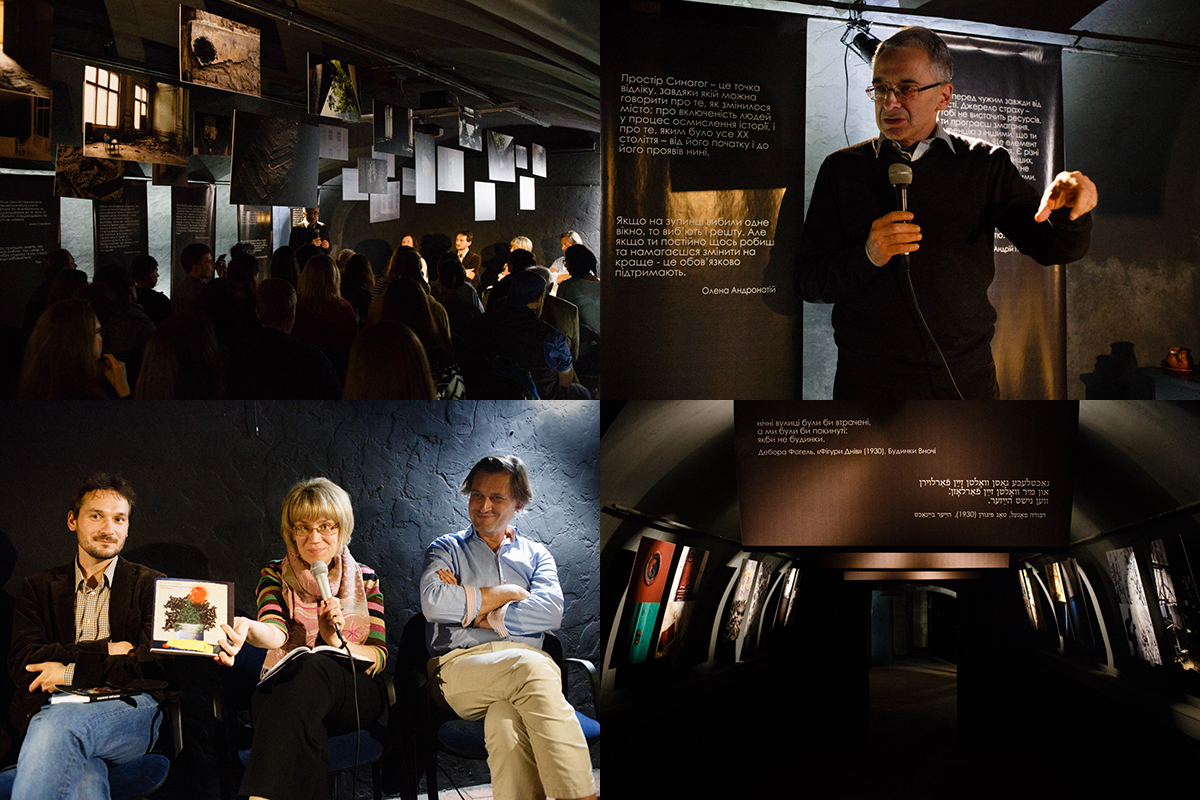
Dr Olesya Khromeychuk (School of History, University of East Anglia): “Fragments of Memory skilfully reveals the complex relationships we have with the spaces we inhabit. The footage takes you around the hidden corners of the city of L’viv, places that contain memories, often troubling, sometimes happy, always moving. The voices of three women narrators unravel the multiple layers of these memories: personal, collective, institutional; forgotten, suppressed and cherished. The fourth voice—a revelation itself—belongs to Debora Vogel, a largely forgotten writer, poet and philosopher who wrote in Polish, Hebrew and Yiddish and possessed a complex identity, much like that of the city itself. She perished in the L’viv ghetto during the Second World War. Her words, which appear against the images of the city, are particularly fitting for a film that gently encourages us to remember the lives that were destroyed in the upheavals of the 20th century and to use these memories to rebuild what was lost and to build a new city. As one of the narrators in the film says, ‘only after accomplishing this memory work will it be possible to go further. Memory isn’t an end in itself.’ Fragments of Memory certainly succeeds both in remembering and in encouraging us to go further.”
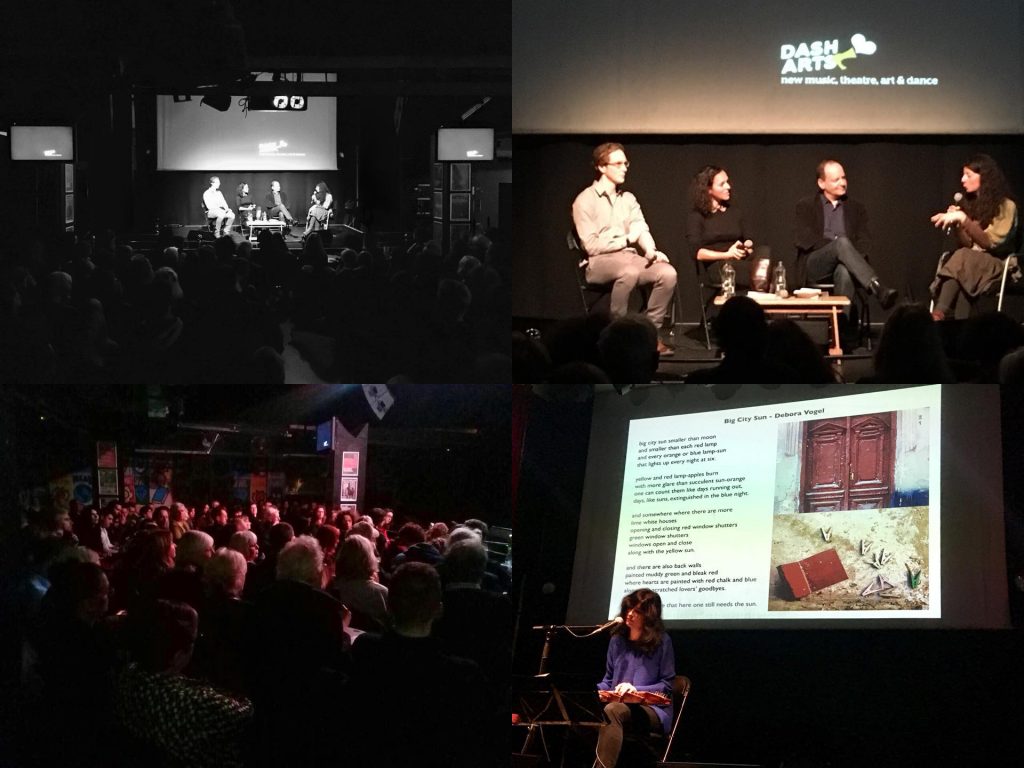
Articles, podcasts and interviews (in English, German, Ukrainian and Yiddish):
Interview with Asya Gefter by Guillet Aude, Catena Artistorum (Part 1)
Interview with Asya Gefter by Guillet Aude, Catena Artistorum (Part 2)
Article “Eine Stadt wacht auf” by Peter Althaus, Jüdische Allgemeine
Article ‘Multimedia Exhibit Breathes New Life Into Debora Vogel’s Poetry’ by Anastasiya Lyubas
Podcast on Lviv Radio Skovoroda with Asya Gefter, Anastasiya Lyubas and Olesya Zdorovetska
Review of the discussion “How to catch up with Debora Vogel” by Anastasiya Lyubas
‘The elusive Debora’ by Yulia Kushnir
www.facebook.com/FragmentsOfMemory
The project has been supported by A-n Travel bursary (UK), Asylum Arts ‘Small Grant’ (US), Kickstarter Crowdfunding campaign, Lviv Book Forum and Lviv Museum of Ideas.
